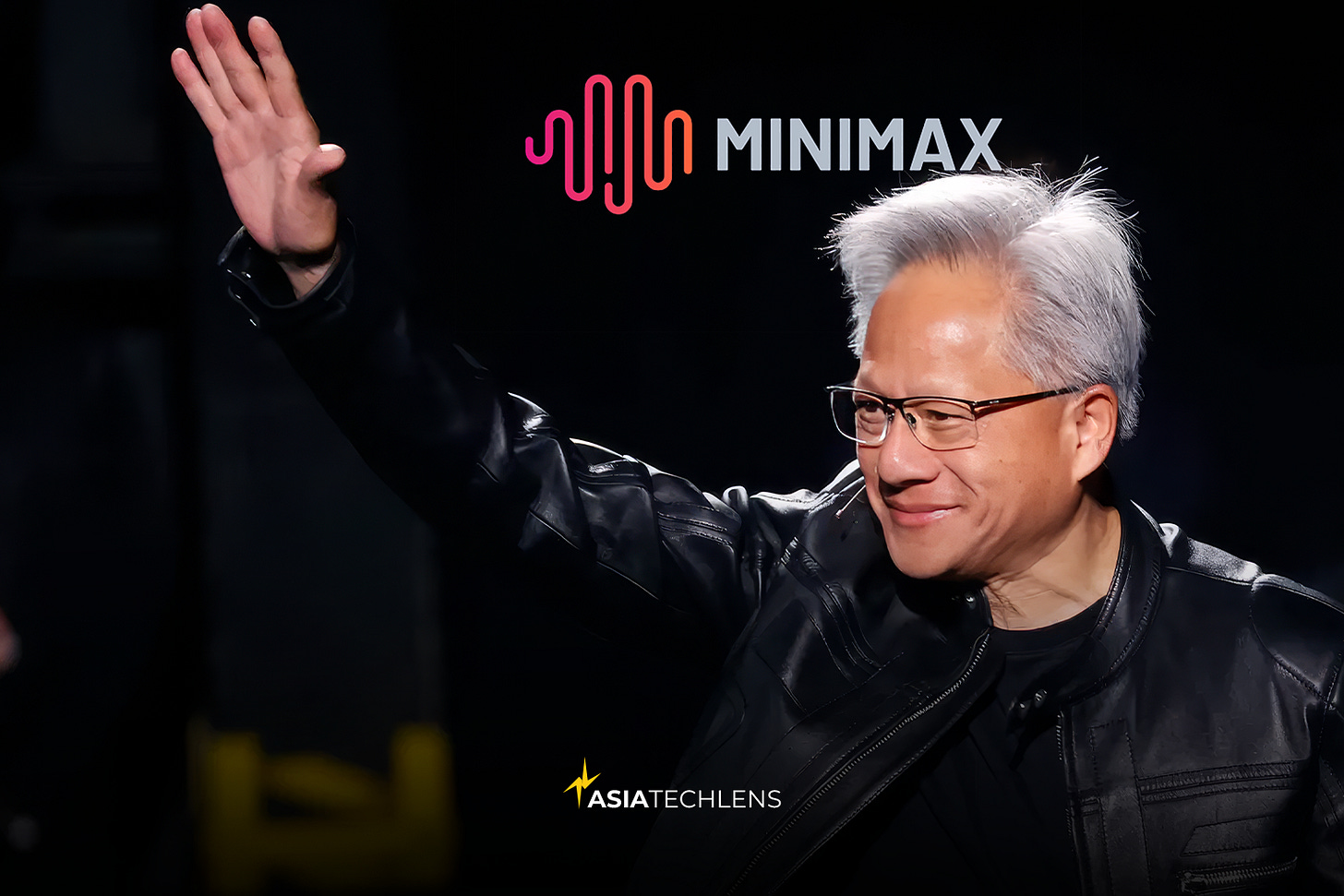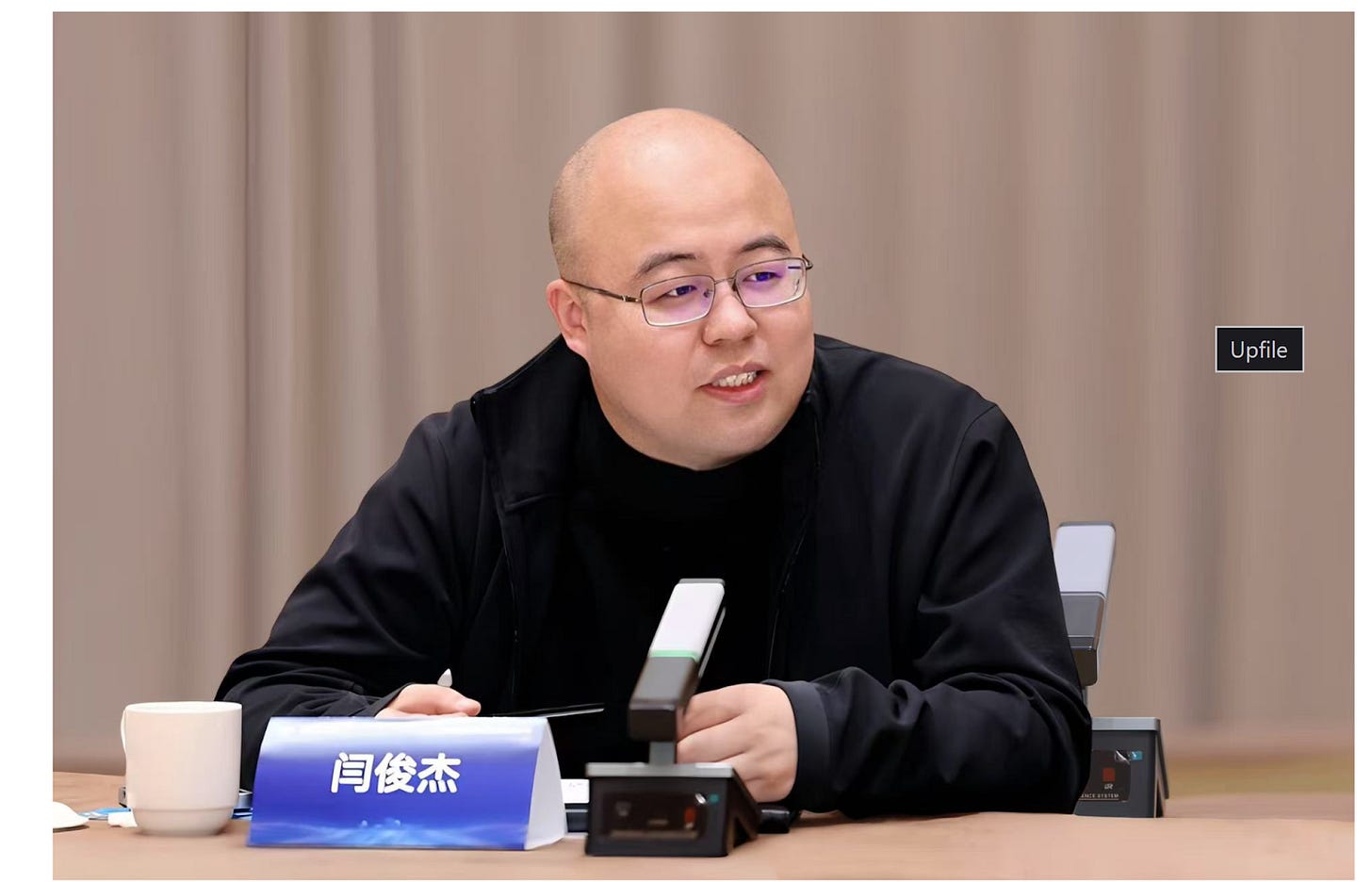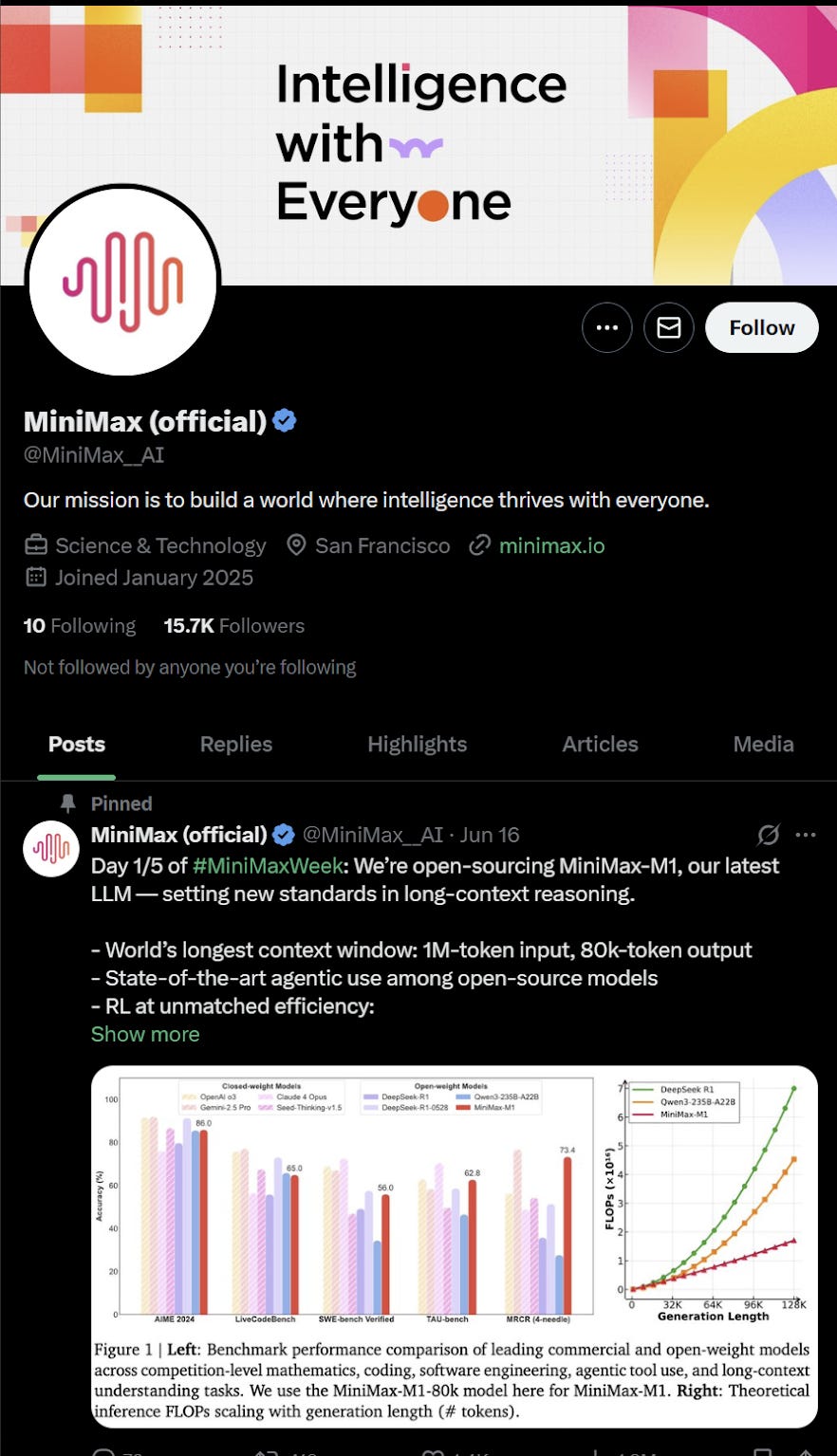Meet MiniMax: The Chinese Tech Company Touted by Jensen Huang That’s Headed for an IPO
How a Quiet Contender Became One of China’s Most Watched AI Firms

Earlier this month, NVIDIA CEO Jensen Huang spotlighted China’s generative AI leaders - naming players like DeepSeek, Alibaba, Tencent, MiniMax, and miHoYo among the country’s world-class innovators. He was speaking at the third China International Supply Chain Expo (CISCE) in Beijing.
While tech giants like Alibaba and Tencent need no introduction, emerging players such as MiniMax and miHoYo remain under the radar for many outside China. But Huang’s remarks, followed by a two-hour face-to-face meeting with MiniMax founder Yan Junjie in Beijing, suggest growing international recognition of these firms.
Last week, we featured a translated piece on miHoYo. This week, we turn our attention to MiniMax - a fast-rising generative AI company building large language models (LLMs) and consumer-facing AI products.
MiniMax gained international recognition through its AI companion app, Talkie. In the first half of 2024, Talkie ranked as the fourth most downloaded AI application in the U.S., surpassing Google-backed rival Character.ai. As of December that year, Talkie had crossed 29 million monthly active users globally. The company is often grouped among China’s “AI Tigers” - a sobriquet given to the country’s most competitive LLM developers, including DeepSeek, Baichuan, Zhipu, and Moonshot. And with a reported IPO on the horizon in 2025, MiniMax is emerging as one of China’s most promising contenders in the global AI race.
Founded Before the Frenzy

MiniMax was founded in December 2021 by Yan Junjie and Zhou Yucong, both former SenseTime (one of China’s leading AI companies known for its computer vision and facial recognition technologies) employees. At SenseTime, Yan was responsible for overseeing the development of deep-learning technologies, distributed computing, inference and general intelligence systems, while Zhou spearheaded its algorithms R&D team.
In a 2024 interview with GeekPark, Yan explained why he left a stable job at SenseTime just as the company was about to go public: “We believed that building general-purpose AI for the public was important. The aim was to develop a model company that could also make good products,” he said.
Interestingly, the company’s name comes from the minimax algorithm in game theory - a strategy designed to minimize potential losses in the worst-case scenario while maximizing potential gains.
MiniMax was founded with a clear strategy: to be one of the few companies in China capable of building both foundational large language models and successful consumer-facing products.
As Yan would later reflect:
“If we had to start over, we would have gone open source on day one.”
Product Evolution
October 2022: MiniMax launched its first product, Glow, an AI companion app that allowed users to create their own virtual characters with fully customizable personalities and voices. It was an immediate success with younger users - amassing close to five million users within four months.
March 2023: Despite its success, Glow was removed from Chinese app stores due to regulatory clearance requirements. Rather than scale back, MiniMax decided to pivot to overseas markets.
June 2023: Just three months later, MiniMax launched Talkie, Glow’s international counterpart, on Google Play and Apple’s App Store. Talkie carried over Glow’s core concept of customizable AI companions, but it was refined for global audiences. It featured new language models, regionally tuned UX, and enhanced visual design to better appeal to non-Chinese users. By mid-2024, Talkie ranked among the top AI apps in the U.S., exceeding 3.8 million downloads in the U.S. and reaching 11 million monthly active users globally.
September 2023: MiniMax brought a similar concept to the domestic market with Xingye, an AI companion content community. Xingye allows users in China to create and share AI characters and interact with them, providing “emotional value” and entertainment. It saw strong uptake, topping domestic AI app charts (26th in social on the App Store) and reaching 900k downloads in the first half of 2024. As of November, Xingye had grown to 5.25 million monthly active users, ranking seventh among AI apps in China.
Full-Stack Expansion in 2025
In June 2025, MiniMax moved decisively beyond AI companions, unveiling a full-stack suite of models and tools under the aegis of #MiniMaxWeek. This marked the company’s most ambitious release cycle to date, positioning it as a serious infrastructure player in the generative AI space.
Here’s what was introduced:
MiniMax M1: The company’s latest open-weight foundation model. It is a sort of “super-brain” that can process up to one million tokens of text at once, roughly equivalent to a full book. Built with a hybrid Mixture-of-Experts architecture and a proprietary Lightning Attention mechanism, it reduces compute requirements by up to 75% compared to models like DeepSeek R1. A new training method, CISPO, also halves the training steps needed to reach the same performance. It’s available as a free download for developers on GitHub.
Hailuo 02: Video generation model that creates 1080p video clips from simple text prompts or uploaded images. It placed #2 globally on the Artificial Analysis Video Arena leaderboard in June 2025, just behind ByteDance’s Seed model and ahead of Google’s Veo, based on technical benchmarking of image-to-video performance.
MiniMax Agent: A general-purpose AI assistant that acts more like a digital analyst than a chatbot. You can feed it messy folders of PDFs and ask it to generate a polished slide deck. It will summarize the documents, pick out key insights, and create formatted slides.
Hailuo Video Agent: A beginner-friendly AI designed to simplify video creation. In its beta launch during #MiniMaxWeek, the company described the tool as offering prebuilt creative templates that allow users to generate high-quality short videos with just text or images as input. The system guides the user through storyboarding, material collection, conceptualizing - ideal for content creators working on TikTok, YouTube Shorts, or even educational videos.
Speech 02: While not officially part of #MiniMaxWeek, Speech 02 had already signaled the company’s full-stack ambitions weeks earlier. MiniMax’s flagship text-to-speech (TTS) model supports over 30 languages, allows voice cloning with just 10 seconds of audio, and generates long-form content with emotion and nuance. In benchmarking tests, Speech 02 ranked #1 on both the Artificial Analysis leaderboard and Hugging Face’s TTS charts in mid-2025.
IPO in Motion
If media reports are to be believed, MiniMax filed a confidential application with the Hong Kong Stock Exchange earlier this month. The filing is seen as the first formal step in what could become one of the earliest IPOs among China’s new cohort of generative AI firms. The company is reportedly targeting a valuation of over US$4 billion and plans to raise between US$510–637 million, with China International Capital Corporation (CICC) and UBS appointed as joint sponsors. The timeline remains fluid, and no prospectus has been made public yet, but if market conditions remain favorable, the IPO could take place before the end of the year.
Yet challenges remain: regulatory scrutiny, intensifying global competition, and the need to sustain innovation beyond viral apps. If MiniMax can strike the right balance between scalable commercialization and frontier R&D, while navigating mounting geopolitical headwinds, it could help redefine China’s place in the global AI race. For investors and tech watchers alike, MiniMax is definitely a name to watch.
For More Info on Asia Tech Lens


